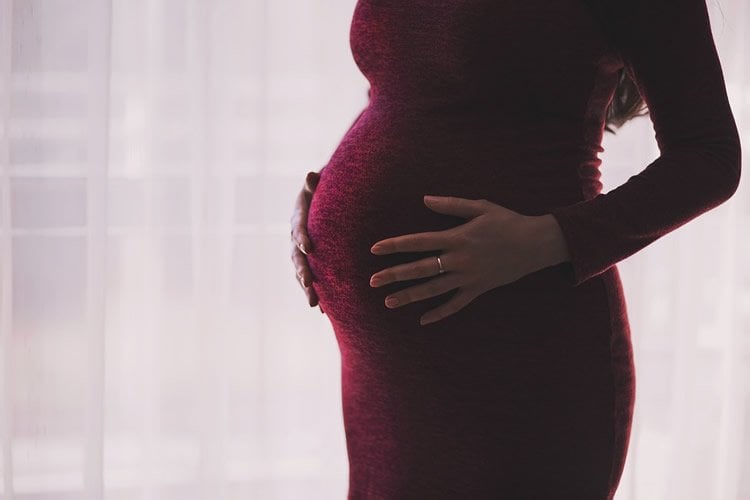Summary: According to Drexel University researchers, mothers who took multivitamins during pregnancy were 30% less likely to have children who develop autism with intellectual disability. However, researchers note the occurrence of autism without intellectual disability was not affected by the use of prenatal multivitamins.
Source: Drexel University.
Children whose mothers took multivitamins during pregnancy are roughly 30 percent less likely to develop autism with a co-occurring intellectual disability, according to a new Drexel University-led study.
In looking at data collected over more than a decade in Stockholm, Sweden, the study team found that the decline in risk linked to multivitamin use only seemed to be tied to autism with intellectual disabilities attached. The odds of developing autism without an intellectual disability did not seem to be affected.
“A potential link between supplement use during pregnancy and autism is intriguing because it suggests a possible avenue for risk reduction,” said Brian Lee, PhD, associate professor in the Dornsife School of Public Health, a fellow in the A.J. Drexel Autism Institute, and senior author of the study published in BMJ (formerly The British Medical Journal).
The study was funded by the National Institutes of Environmental Health Sciences, part of the National Institutes of Health. Data for it was drawn from children living in Stockholm County, Sweden, for at least four years between 2001 and 2011. Only children ranging in age from four to 15 years-old at the end of 2011 were included. To make results more robust, data from siblings was also taken into account to help offset some of the unseen factors in autism development, like heritability or otherwise healthy behaviors.
Comparatively little is known about how diet during pregnancy might affect the risk of a child developing autism, so this study adds information to build upon, according to its lead author, Elizabeth DeVilbiss, PhD, a recent graduate of the Dornsife School of Public Health.
“There have been more studies in recent years about varied aspects of diet during pregnancy and autism risk involving multivitamins, iron, folic acid, vitamin D and more, but the evidence is still inconclusive,” said DeVilbiss, now a post-doctoral fellow at the Eunice Kennedy Shriver National Institute of Child Health & Human Development. “More work needs to be done in this area to clarify these potential relationships.”
Hoping to clarify further autism risk linked to diet during pregnancy, DeVilbiss, Lee and their team — which also included researchers from the University of Bristol and the Karolinska Institute — also looked for potential changes in autism risk related to taking supplemental folic acid and iron. Both are supplements that have commonly been recommended for pregnant women. But neither appeared to have a significant effect on a child’s autism development — positive or negative.

However, there is room for other factors to have influenced those results.
“We cannot rule out potential contributions by iron and folic acid,” DeVilbiss said. “Diet during pregnancy is complicated, and there are important factors we can’t assess with our data, such as dietary intake, dose and timing. This is clearly an area for future work.”
In that future work, the hope is that more specifics can be nailed down. DeVilbiss and Lee’s study found links between multivitamin use and potential protection against autism with intellectual disabilities, but a “link” isn’t the same as a “cause” in research. Again, it comes down to other factors and variables.
“If there is a causal relationship, we also need to understand whether there is a critical window for exposure, and what specific nutrients and amounts may be required for protection,” DeVilbiss said.
Funding: The research was funded by the NIH.
Source: Frank Otto – Drexel University
Image Source: NeuroscienceNews.com image is in the public domain.
Original Research: Full open access research for “Antenatal nutritional supplementation and autism spectrum disorders in the Stockholm youth cohort: population based cohort study” by Elizabeth A DeVilbiss, Cecilia Magnusson, Renee M Gardner, Dheeraj Rai, Craig J Newschaffer, Kristen Lyall, Christina Dalman, and Brian K Lee in BMJ. Published online October 4 2017 doi:10.1136/bmj.j4273
[cbtabs][cbtab title=”MLA”]Drexel University “Multivitamin Use During Pregnancy Linked to Lower Autism With Intellectual Disability Risk.” NeuroscienceNews. NeuroscienceNews, 5 October 2017.
<https://neurosciencenews.com/multivits-autism-pregnancy-7668/>.[/cbtab][cbtab title=”APA”]Drexel University (2017, October 5). Multivitamin Use During Pregnancy Linked to Lower Autism With Intellectual Disability Risk. NeuroscienceNews. Retrieved October 5, 2017 from https://neurosciencenews.com/multivits-autism-pregnancy-7668/[/cbtab][cbtab title=”Chicago”]Drexel University “Multivitamin Use During Pregnancy Linked to Lower Autism With Intellectual Disability Risk.” https://neurosciencenews.com/multivits-autism-pregnancy-7668/ (accessed October 5, 2017).[/cbtab][/cbtabs]
Abstract
Antenatal nutritional supplementation and autism spectrum disorders in the Stockholm youth cohort: population based cohort study
Objective To determine whether nutritional supplementation during pregnancy is associated with a reduced risk of autism spectrum disorder (ASD) with and without intellectual disability in offspring.
Design Observational prospective cohort study using multivariable logistic regression, sibling controls, and propensity score matching.
Setting Stockholm County, Sweden.
Participants 273 107 mother-child pairs identified through population registers. The study sample was restricted to children who were aged 4 to 15 years by the end of follow-up on 31 December 2011 and were born between 1996 and 2007.
Exposures Multivitamin, iron, and folic acid supplement use was reported at the first antenatal visit.
Main outcome measure Diagnosis of ASD with and without intellectual disability in children determined from register data up to 31 December 2011.
Results Prevalence of ASD with intellectual disability was 0.26% (158 cases in 61 934) in the maternal multivitamin use group and 0.48% (430 cases in 90 480) in the no nutritional supplementation use group. Maternal multivitamin use with or without additional iron or folic acid, or both was associated with lower odds of ASD with intellectual disability in the child compared with mothers who did not use multivitamins, iron, and folic acid (odds ratio 0.69, 95% confidence interval 0.57 to 0.84). Similar estimates were found in propensity score matched (0.68, 0.54 to 0.86) and sibling control (0.77, 0.52 to 1.15) matched analyses, though the confidence interval for the latter association included 1.0 and was therefore not statistically significant. There was no consistent evidence that either iron or folic acid use were inversely associated with ASD prevalence.
Conclusions Maternal multivitamin supplementation during pregnancy may be inversely associated with ASD with intellectual disability in offspring. Further scrutiny of maternal nutrition and its role in the cause of autism is recommended.
“Antenatal nutritional supplementation and autism spectrum disorders in the Stockholm youth cohort: population based cohort study” by Elizabeth A DeVilbiss, Cecilia Magnusson, Renee M Gardner, Dheeraj Rai, Craig J Newschaffer, Kristen Lyall, Christina Dalman, and Brian K Lee in BMJ. Published online October 4 2017 doi:10.1136/bmj.j4273






